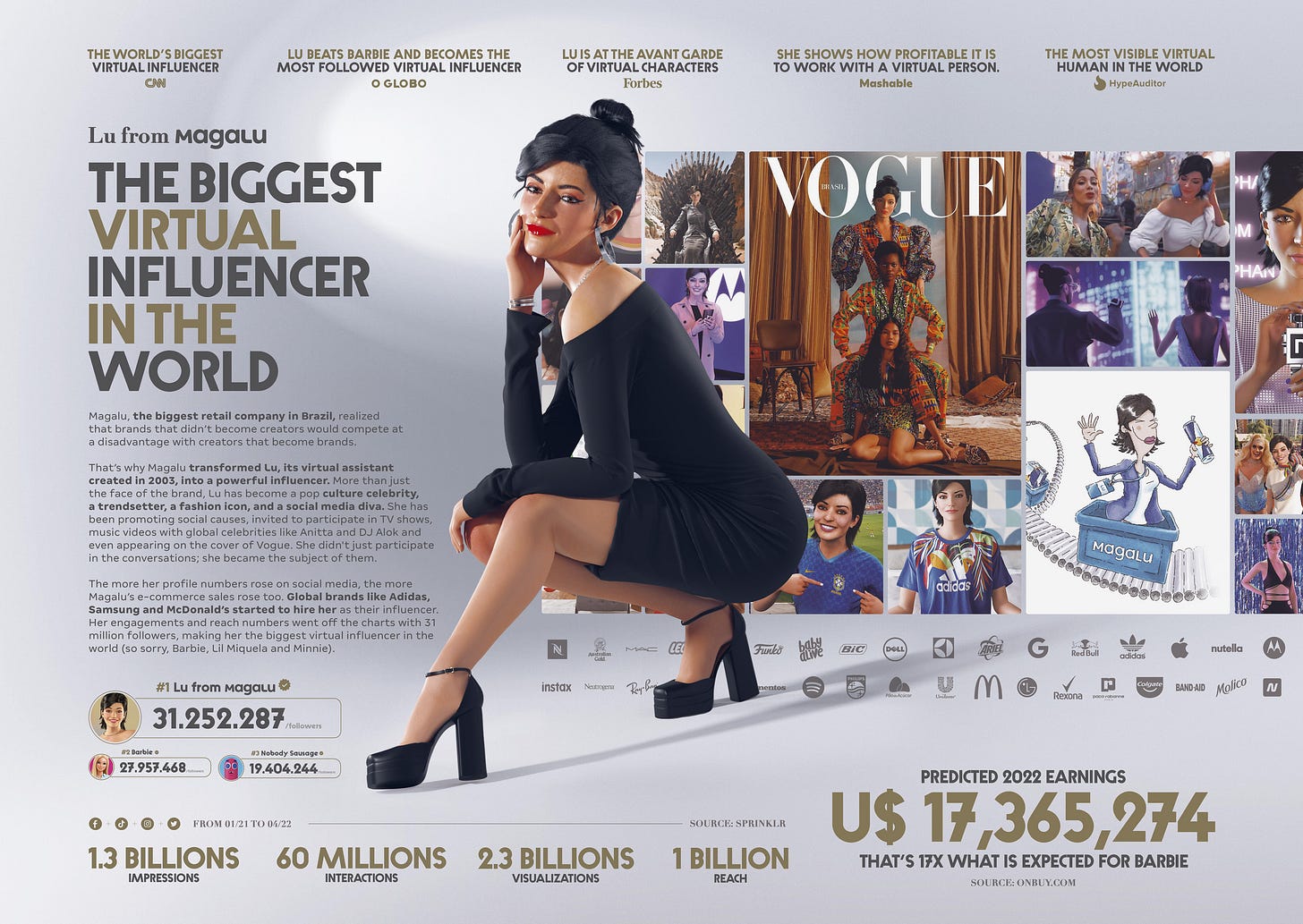From AI chatbot to virtual influencer with 20 million followers on social media
Meet Lu the virtual influencer
Lu is a virtual influencer who was created by Brazilian retail company Magalu in 2003. She's now the biggest virtual influencer in the world, with over 20 million followers on social media.
Magalu turned Lu from a virtual assistant into a creator in a strategic move to tap into the growing popularity of influencers. By giving Lu a personality and a voice, Magalu was able to create a more engaging and relatable brand ambassador.
Lu's success as an influencer can be attributed to a few things. First, she's well-aligned with Magalu's target audience. Lu is a young, female millennial who's into fashion, beauty, and lifestyle. Second, Lu is active on social media and produces high-quality content. She regularly posts photos and videos of herself, and she also collaborates with other influencers. Third, Lu is authentic and relatable. She shares her personal experiences and opinions, and she's not afraid to be herself.
Lu's success has paved the way for other virtual influencers. In recent years, there's been a growing trend of brands creating their own virtual influencers. These influencers offer a few advantages over traditional influencers, including:
They're always available to interact with fans.
They can be controlled by the brand, which means there's no risk of them making a mistake.
They can be used to promote products and services in a more engaging way.
As the popularity of virtual influencers continues to grow, it's likely that we'll see even more brands adopt this strategy.
The project to create Lu the virtual influencer was a collaboration between Magalu, Ogilvy, and Pedro Gouveia.
Gouveia is a creative director who has worked on a number of award-winning campaigns.He's passionate about storytelling and using technology to create innovative marketing campaigns.
He believes that virtual influencers have the potential to revolutionize the way brands connect with consumers.
Overall, Lu the virtual influencer is a successful example of how brands can use technology to create engaging and relatable brand ambassadors. Her success is likely to inspire other brands to adopt this strategy in the future.
Generative AI
Lu's voice is created using a type of generative AI called Text-to-Speech (TTS). TTS uses a large dataset of human speech to train a model that can generate new speech that sounds like a real person. In Lu's case, the TTS model was trained on a dataset of Brazilian Portuguese speech. This allows Lu to speak in a natural and engaging way that is authentic to her Brazilian roots.



